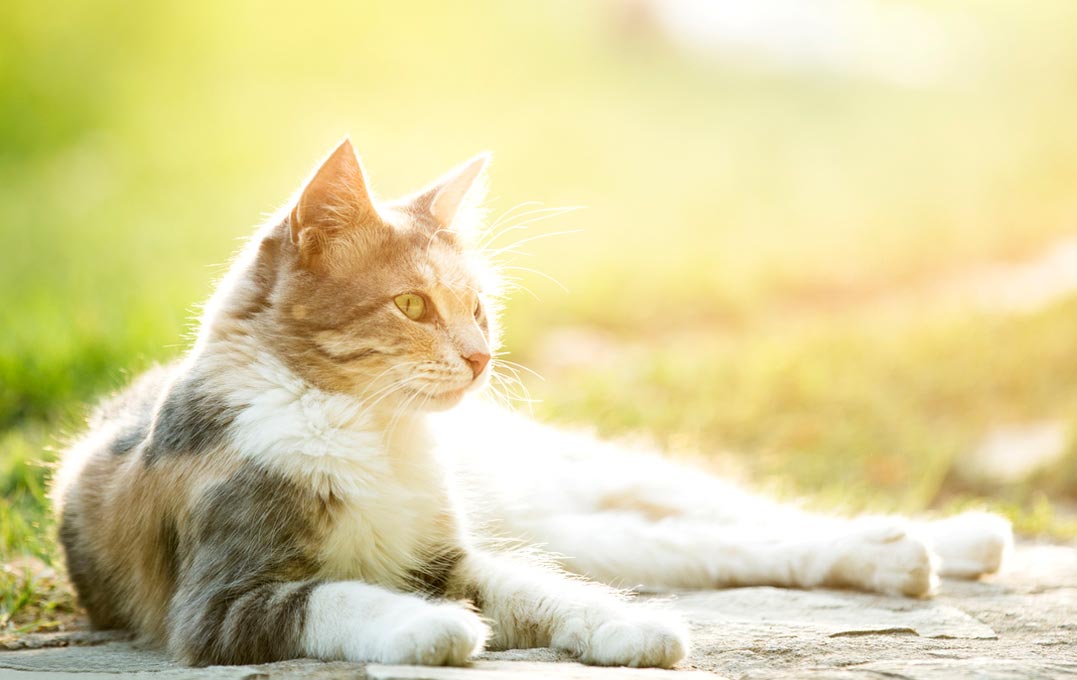Outdoor Dangers for Cats

If you have a cat that goes outside, it's important to be aware of the dangers he might encounter there. And if you have a cat that doesn't go outside yet but you're considering allowing him to, make sure you read through this first to get an idea of why cats that stay inside have a longer life expectancy.
Cars
One big and obvious danger to cats outdoors is cars. Many cats don't understand the dangers of the road and even those that do seem to know a little about cars can still be hit by a fast moving one when they aren't expecting it.
Most cats will not survive being hit by a car and those that do may have chronic injuries and pain.
Other Animals
The dangers outside that come from other animals are many and varied. They include fights with other cats that can be territorial, dogs, and wild animals like coyotes. Fights with other animals are a big source of injuries and deaths in outdoor cats.
Feline Communicable Diseases
Viruses that are communicable between cats, like feline leukemia virus (FELV) and feline immunodeficiency virus (FIV) are dangerous for outdoor cats that might come into contact with and even fight with other cats.
These viruses are not curable, and they shorten a cat's life span, sometimes by many years.
Internal and External Parasites
Cats that go outside are much more likely than indoor cats to come in contact with and contract external parasites like fleas and ticks and internal parasites like roundworms, whip worms, and hookworms.
These parasites can all cause other medical conditions and cats ranging from skin allergies to blood loss anemia. Keeping your cat inside drastically reduces their risks of coming into contact with and picking up both internal and external parasites.
Extreme Weather Conditions
Outdoor cats may be in danger from weather extremes like heat, cold, and storms. Cats can suffer from hypothermia, heat stroke, frostbite, and be seriously injured in violent weather.
Toxins
Outdoor cats are more likely to be exposed to toxins like antifreeze, other auto fluids, rock salt, fertilizer, garden insecticides, lead paint, and many others. Of course, there are indoor toxins that can be dangerous to cats, too, but those are easier for the homeowner to control by locking them up.
Humans
Outdoor cats might be in danger from malicious humans or those who don't wish to have cats on their property. They might also be picked up and kept or turned in to a shelter by well-meaning people who don't know they have an owner.
You May Also Like These Articles:
Hypothermia and Heatstroke in Cats
Cat Fleas: Does My Cat Have Fleas?
Cat Scratch Fever: What It Is and How to Avoid It
FIP: Feline Infectious Peritonitis in Cats




